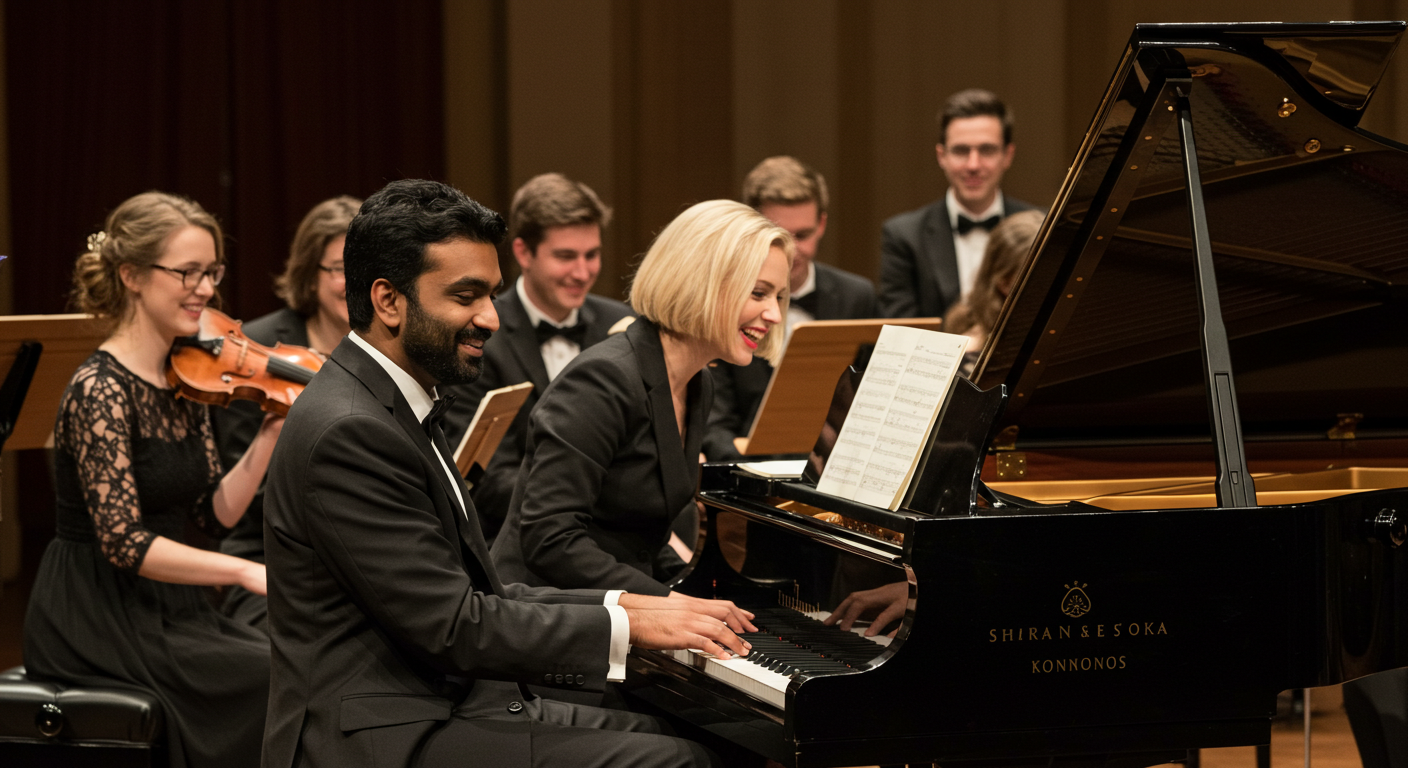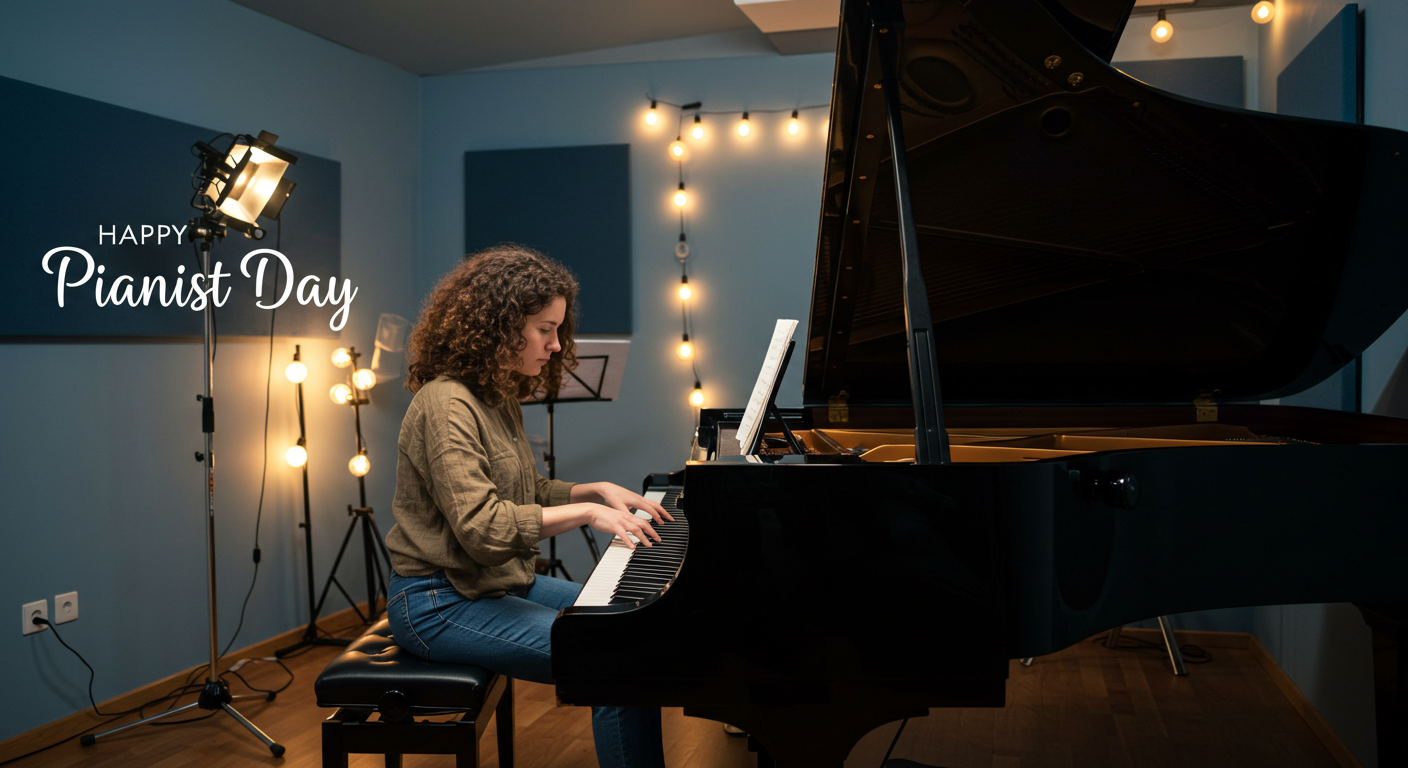88 Keys, Endless Stories: Iconic Pianists Who Changed Music Forever

The piano has 88 keys — but across centuries and genres, it has told millions of stories. Behind every melody that lingers in our memory, there’s a pianist whose hands, vision, and persistence shaped the way we hear music.
Some did it with stormy sonatas. Others with blues-soaked ballads. A few turned concert halls into rock stages. What they all have in common is this: they changed how the piano was played — and what it could say.
Whether you’re a lifelong pianist or someone who’s just discovering the beauty of the instrument, here are some of the most influential pianists in history — across classical, jazz, and pop — who helped define the sound and soul of the piano.
Classical Giants Who Set the Standard
Ludwig van Beethoven
Beethoven didn’t just write for the piano — he transformed it. Before him, the piano was often a refined, elegant presence. Beethoven made it thunder and cry. He expanded its emotional range and brought unprecedented depth to solo piano music. Even in deafness, his inner music moved generations.
Frédéric Chopin
Known as the “poet of the piano,” Chopin created a style entirely his own. His nocturnes, etudes, and waltzes are emotional blueprints for pianists — intimate, lyrical, and technically challenging. For many, playing Chopin is not just a goal but a rite of passage.
Clara Schumann
A formidable concert pianist and composer, Clara Schumann toured Europe at a time when women were rarely seen as musical leaders. Her performances influenced composers like Brahms, and she was instrumental in elevating the role of the pianist as interpreter and storyteller.
Vladimir Horowitz
Known for his dazzling technique and expressive phrasing, Horowitz brought charisma and intensity to every note. His recordings of Rachmaninoff, Liszt, and Chopin set benchmarks that still challenge pianists today.
Jazz Icons Who Rewrote the Rules
Art Tatum
If you’ve ever heard piano playing that seems faster than humanly possible — that might’ve been Art Tatum. His improvisations were jaw-dropping in complexity, inspiring everyone from Oscar Peterson to classical pianists who studied his phrasing like a language.
Thelonious Monk
A genius of rhythm and minimalism, Monk’s angular, offbeat style confused some and mesmerized others. His compositions, like “Round Midnight,” remain jazz standards. His unique voicing and phrasing helped redefine what “musicality” could mean in jazz piano.
Herbie Hancock
Hancock is proof that innovation never stops. From Miles Davis’s quintet to funk-fueled jazz fusion and Grammy-winning solo projects, he’s shown that the piano can be funky, free, and futuristic all at once. His influence crosses genres and generations.
Pop & Crossover Artists Who Took the Piano Mainstream
Ray Charles
With a voice full of soul and a piano style rooted in gospel and blues, Ray Charles broke barriers and built bridges. He made piano-based rhythm and blues mainstream, blending heartfelt ballads with joyful grooves.
Elton John
Few artists have brought the piano to pop superstardom like Elton John. From stadium anthems to stripped-down ballads, he’s proven that the piano can carry any kind of song — and any size crowd.
Yuja Wang
A modern classical pianist known for her fiery technique and bold stage presence, Yuja Wang has become a symbol of the new generation of virtuosos. She blends musical precision with performance flair, often crossing into jazz and contemporary styles.
Ludovico Einaudi
In a world flooded with noise, Einaudi’s minimalist, contemplative music has found a global audience. His compositions like “Nuvole Bianche” are now modern classics — proving that emotional impact doesn’t require complexity.
Why Their Legacy Still Matters
These pianists didn’t just master the keyboard — they reimagined what it could be. Each one challenged the status quo, created their own voice, and left behind more than music: they left a path for others to follow.
They influenced how we teach, how we listen, and how we define artistry. Whether in a concert hall, a smoky jazz bar, or a streaming playlist, their impact still echoes.
And that's exactly what Pianist Day is about — celebrating every person who dares to sit down at the piano and make it their own. Whether you're a student playing your first notes, a teacher guiding others, or a performer continuing this legacy, you're part of a story much bigger than yourself.
Conclusion: Your Turn at the Keys
The beauty of the piano is that its history is never finished. It grows with every new piece, every new player, every new voice that chooses to step up to its keys.
So whether you're playing Chopin or composing your own jazz lick, you’re part of a tradition shaped by legends — and waiting to be shaped by you.
There are 88 keys. But the number of stories? Endless.
Related news (no lang!)
You Might Also Like (no lang!):
Do you want your name to be included on the world Pianist Day website and remain there forever?
CONTACT US!
Filll the form for creating your own events and stories! Also you can send us the info to our email info@pianistday.com, or directly to Instagram (it's more convenient and easier) so we can tell the world about them.








